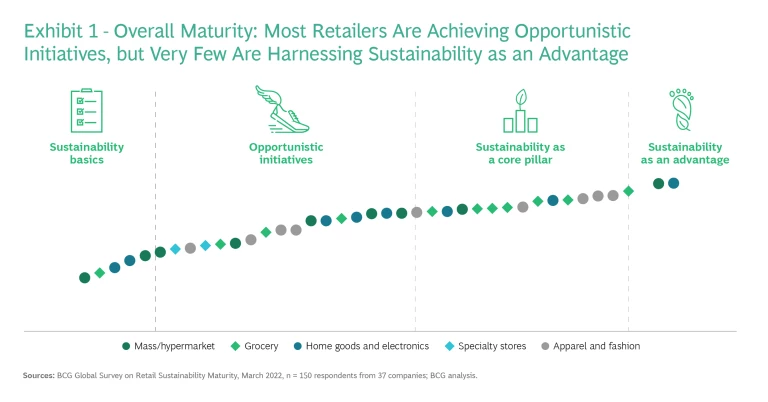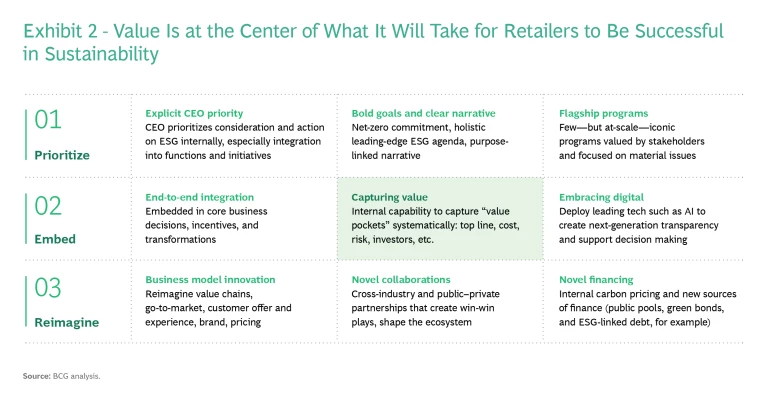A new maturity survey from BCG, developed in collaboration with the World Retail Congress , finds that sustainability is now a strategic priority for many retail companies. That’s the good news. The more important finding from the survey, which polled employees at 37 major retail chains around the world, is that the sector as a whole has some way to go before it can claim truly sustainable retailing credentials.
The fact is that only a few large retail operations are significantly reducing the climate impact along their value chains or embedding sustainable behavior throughout their own organizations. Most have yet to put in place comprehensive sustainability agendas, and fewer than 20% indicate that they are on track to abate their direct and indirect emissions to perform in line with the goal set by the Paris Agreement in 2015 of limiting the rise in global temperature no more than a 1.5⁰C.
Subscribe for more insights on the retail industry
This report underscores the pressing need for the retail sector to augment and accelerate its climate-change responses. Today, retailers are among the biggest contributors of plastic packaging, which represents 40% of global plastic usage. Additionally, the green supply chain is not yet a reality in the industry; retailers’ supply chains are responsible for more than 25% of global emissions.
Translated into a maturity curve, the survey results reveal the spread of sustainability activities in practice. (See Exhibit 1.) Most retailers have set bold ambitions but have not yet achieved full integration of sustainability in corporate strategy or within business functions. Some consider sustainability throughout the organization. Only a select few are using sustainability as a competitive advantage. Clearly, there is something to be learned from those leaders.

To help turn ideas into action, the report presents principles for succeeding with sustainability in retail, placing the emphasis on progress, not perfection. The most critical principle is to put value capture squarely at the center. (See Exhibit 2.)

To think of this value mindset in terms of value creation, retailers need to work on having the rest of the principles in place. That calls for a three-phase approach: first prioritize; then embed; and then reimagine.
Prioritize in the corporate strategy. Leadership must not only sponsor the journey toward truly green retailing, but also be involved and accountable—all the time. Beyond setting bold goals and communicating them clearly, prioritization should include establishing several flagship programs at scale.
Embed into the business and operations. Embedding sustainability in the day-to-day business requires a review of the operating model and a shift in accountability. Retailers that perform well along the governance dimension do two things consistently: they regularly publish KPIs internally, and they embed sustainability metrics in their business reviews. Companies must also fully embrace digital technologies, deploying them to support decision making through newly created transparency.
Reimagine for a sustainable business. Companies must reimagine their value chains as well as their go-to-market offerings, brands, and pricing. Collaboration is essential, too: roughly 90% of sustainability teams surveyed believe that engagement and collaboration with peers and other ecosystem members will contribute to progress in sustainability. Novel financing can also play a part—for instance, by tapping into new funding sources such as green bonds.
Together, many small steps and successive quick wins will steadily drive real movement along the maturity curve and significant value for both individual players and the industry.














